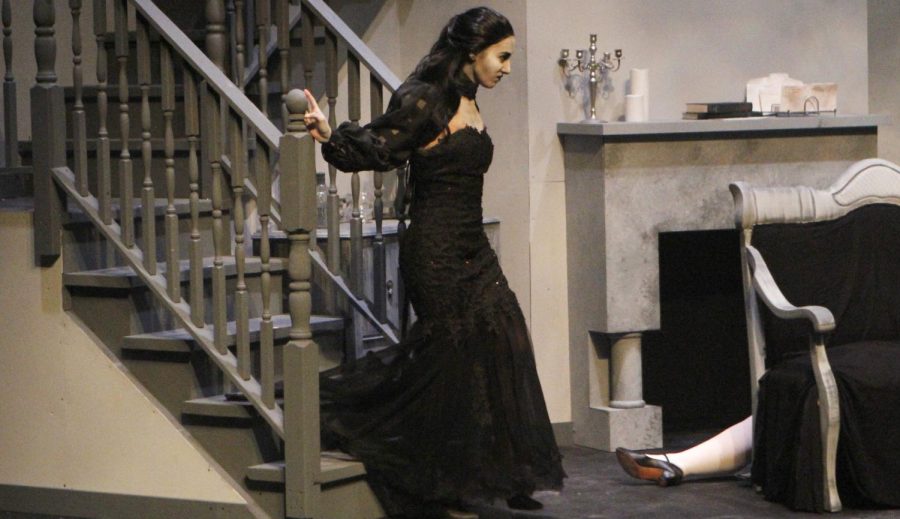Dracula: How the show goes on
Producing “Dracula” met some obstacles, but work from the entire team including actors, costume designers and set designers led to the play’s performance.
October 1, 2018
Over 50 students and staff members collaborated to produce “Dracula” in the Vonnie Borden Theatre for Fanfare.
The play was performed from Sept. 25-28 and was adapted for the stage and directed by James Winter, associate professor of acting and directing.
Winter had his own spin on the English play.
Set in a coastal city during the 1920s, “Dracula” adapted changes in the original play and adjusted stage, costume designs and play script for the target audience. Changes were also brought to character roles and set design. The play was planned months in advance.
In Winter’s adaptation of this classic book, Dracula was portrayed as a woman.
The production of a play goes beyond actors learning their lines and acts.
“The cast needs to learn everyone’s part in case someone misses a line or forgets their part,” said Winter. “People just think it’s acting and learning the stage directions. No, it’s a lot more than that.”
Winter described theatre as a team effort requiring ushers and people on lights, sound and makeup as well as the actors.
“Just like baseball or football, it takes more than one person to perform the entire production,” said Winter. “If we had no lights, then our audience would not be able to see our actors. If we had no ushers, the audience would be loud and obnoxious.”
Emily Bellington, instructor of theatre, was in charge of costume design, which was a lengthy process that took as long as any other part of preparation. Benjamin Norman, technical director, choreographed for the performance.
The technical crew also made up for a big part of “Dracula” with multiple different tasks and roles. The technical crew varied from a graphic designer to a sound board operator.
Winter is a firm believer in the age-old phrase, “the show must go on.” He had to replace two actors. One of the replacement actors had to get their role’s gender changed. The hurricane day delayed rehearsal time for the production.
“Other hiccups came along the way, but I was more than confident the team could get it done and we did,” said Winter.











